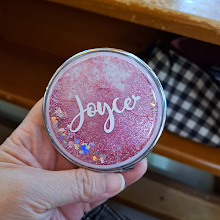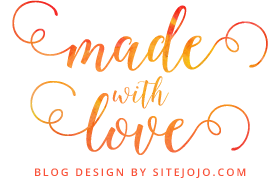 |
| Source |
Oh yes, breastfeeding a toddler is so different from breastfeeding a baby. The image above represents the practice of nursing a toddler. It's called gymnurstics. :)
Three things I learn about nursing a toddler
#1 - They can be physically demanding. They pinch, twiddle, and pull the other nipple (if that's their habit). They turn their heads and look around, without warning, unless you can sense it. They do a marathon of kneeling down, squatting, standing up, and sitting down. Sometimes, they prefer "boob-surfing" - left boob, right boob, repeat. When they are teething, they might bite. Ouch!
#2 - It's a relationship - both mom and toddler need it! It's a partnership, an engagement - for long-term benefit - which goes well beyond nutritional needs. Heard of mothering through nursing? When they get sensory overload from their surroundings or during play time and they can't handle it anymore, they will run to you (you're THE mother) for timeout.
I can testify that nursing is the best way to calm down an over-stimulated and cranky toddler. That calm-and-stoned look as my toddler latches on is what makes me continue our breastfeeding journey. Of course, he hasn't shown interest in weaning yet. I can't force him to latch on if he doesn't want to. :)
#3 - It's an instinctual maternal habit. I co-sleep with my toddler from his babyhood. I think this helps us to establish our breastfeeding journey well. (My toddler had tongue-tie when he was a baby and my supply was somewhat affected due to mastitis, cracked nipples, and numerous episodes of blocked ducts).
When he demands nursing while we're halfway shopping at malls, we will rush to a nearby nursing room to nurse him. Really, it's not about showing off. It's just an instinctual maternal habit.
 |
| The tot likes to stand to nurse while I sit. |
******************************
Quiz: Test Your Breastfeeding IQ
I took this simple test to see how much I really know about breastfeeding. Guess what? I scored 100%! If your score is between 90-100, congratulations! You've done your research, and should feel comfortable with your level of breastfeeding knowledge. Yay!!!
I like these two questions the most:
The best food for a sick breastfed baby with diarrhea is... BREASTMILK! Not soda, water or Pedialyte. Yeah, my tot only wanted to latch on 24/7 when he had stomach flu.
The average age of weaning world-wide is... 2-4 years old! Not 6 months, 1 year, or 1½ years.
******************************
Diagrams of the breastfed baby and toddler
The diagrams below (from TheAlphaParent) are excellent bite-sized sources describing the well-being of a breastfed baby AND when the baby has grown into a huge baby (toddler).
 |
| For bigger image, click here. |
 |
| For bigger image, click here. |
I'm doing my very best to let him latch on as much and as long as he likes so that he gets the necessary immunity factors he needs from breastmilk. Some breastmilk is better than none.
******************************
******************************
The power of breastmilk
Some of the immune factors in breastmilk increase in concentration during the second year and also during the weaning process.
[Source]
[Source]
In the second year (12-23 months), 448ml of breastmilk provides:
29% of energy requirements
43% of protein requirements
36% of calcium requirements
75% of vitamin A requirements
76% of folate requirements
94% of vitamin B12 requirements
60% of vitamin C requirements
[Source]
Breastfeeding is a warm and loving way to meet the needs of toddlers and young children. It not only perks them up and energizes them; it also soothes the frustrations, bumps and bruises, and daily stresses of early childhood. In addition, nursing past infancy helps little ones make a gradual transition to childhood.
[Source]
The American Academy of Pediatrics recommends that: Breastfeeding should be continued for at least the first year of life and beyond for as long as mutually desired by mother and child. Increased duration of breastfeeding confers significant health and developmental benefits for the child and the mother. There is no upper limit to the duration of breastfeeding and no evidence of psychological or developmental harm from breastfeeding into the third year of life or longer.
[Source]
******************************
Links
More awesome informative links about breastfeeding toddlers on kellymom.com and themilkmeg.com - THANKS!
 |
| Napping after a satisfying nursing session. :) |


























No comments